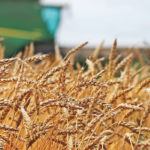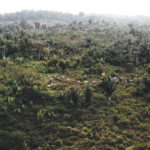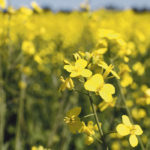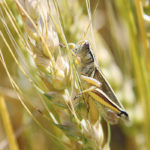Country’s traders are feeling the pinch as the government continues to enforce policies that curtail imports and severely restrict trade
India’s kharif (summer) crop has recovered from a poor start and is shaping up nicely, say analysts. Monsoon rainfall that was 18 percent below normal for the period between June 1 and July 19 is now four percent above average for the June 1 through Sept. 11 period. Pulse crop seeding that was more than […] Read moreMarkets — page 350

Weak price makes wheat harvest and seeding a chore
I hope the current dismal state of the wheat market will encourage a further drop in American winter wheat acreage this fall. Meanwhile, western Canadian farmers are applying the word dismal to their harvest, where rain Sept. 9-12 further stalled progress. The moisture also likely damaged the quality of wheat and durum. The largest accumulations […] Read more

JBS uses satellite views to prove sustainability
The Brazilian meat giant tracks cattle sources from space for its domestic operations to ease environmental concerns
SAO PAULO, Brazil (Reuters News Agency)— The world’s largest meat packer, JBS SA, is monitoring the origin of the cattle it buys in Brazil amid heightened concerns about environmental preservation and sustainable business practices, its chief executive officer said on Sept. 11. Speaking at an industry event in São Paulo, Gilberto Tomazoni said the company […] Read moreWP livestock report
Bison The Canadian Bison Association said Grade A bulls in the desirable weight range sold at prices from C$4.80-$5 per pound hot hanging weight. U.S. buyers are offering US$3.85-$4 per lb. with returns dependent on exchange rates, quality and export costs. Grade A heifers sold up to C$4.70-$4.80. U.S. buyers are offering US$3.60-3.80 per lb. […] Read more
Canfax report
This cattle market information is selected from the weekly report from Canfax, a division of the Canadian Cattlemen’s Association. More market information, analysis and statistics are available by becoming a Canfax subscriber by calling 403-275-5110 or at www.canfax.ca. Fed set new low Western Canadian fed prices set new lows last week and are now at […] Read more

Vegetable oil production slows
Vegetable oil prices are on the rise and that is supporting canola prices, say analysts. Siegfried Falk, co-editor of Oil World, is forecasting a slowdown in the growth in the world production of vegetable oils in 2019-20. Supplies are projected to grow by 3.8 million tonnes, down from 5.1 million tons the previous year and […] Read more

Labelling regulations called threat to pulse protein sector
MONTREAL — Pulse protein demand and development is being pushed forward by mighty consumer tailwinds. But it also faces frequent headwinds, so promising products have to fight choppy seas. Food developers must tack through the rough waters to reach the consumer demand, Loblaws’ director of product development, Samara Foisy, told the Canadian pulse and special […] Read more

New ambassador sparks optimism
Farm groups say the appointment of Dominic Barton as Canada’s ambassador to China could finally mean action on trade issues between the two countries. Barton chaired the Advisory Council on Economic Growth for federal Finance Minister Bill Morneau, which recognized agriculture as a key driver in the Canadian economy and one poised for growth. That […] Read more

Standing up to China would be costly
Few farmers had heard of Dominic Barton before this week, but he should be in their prayers because as the new Canadian ambassador to China he has an almost impossible job. Canadian-Chinese relations are the worst in decades, mostly because Canada is holding a top officer of China technology giant Huawei, Meng Wanzhou, on an […] Read more

Smaller Aussie wheat crop may not lift prices
Analysts say that the big crops expected in the United States and Canada could offset the reduction in Australia
Australia’s wheat crop is shrinking and that should create good marketing opportunities for Canada’s spring wheat crop, says an analyst. The Australian Bureau of Agricultural and Resource Economics and Sciences (ABARES) is forecasting 19.1 million tonnes of production, down 10 percent from its previous estimate. That would be the third consecutive disappointing harvest for Australia. […] Read more





